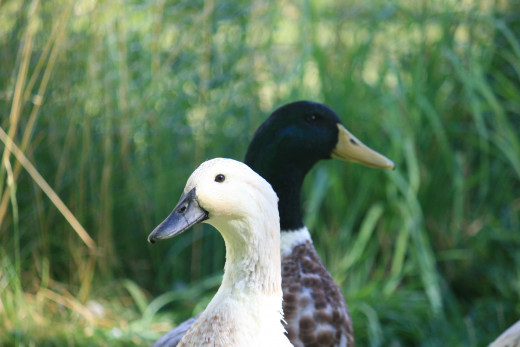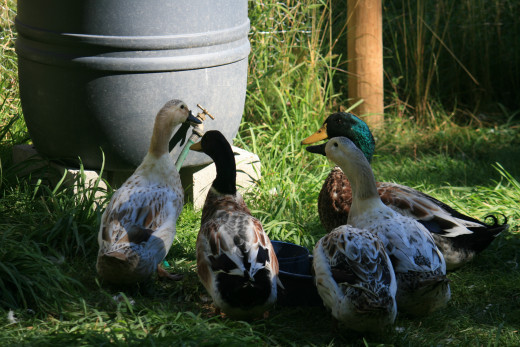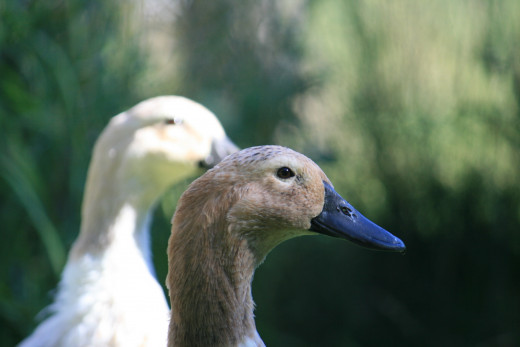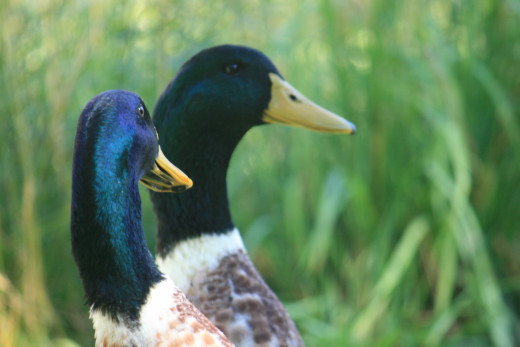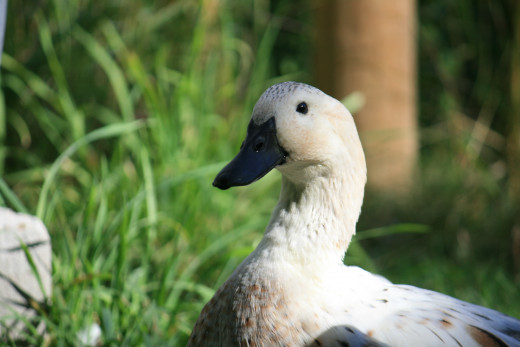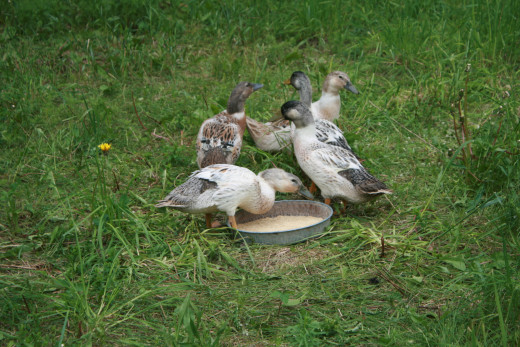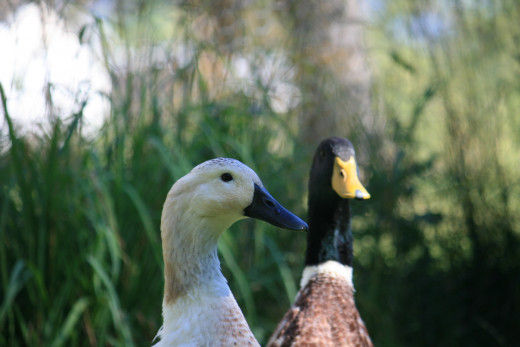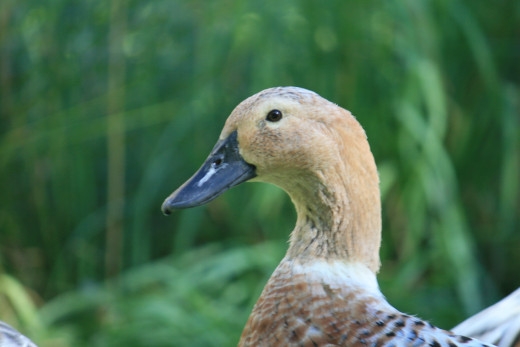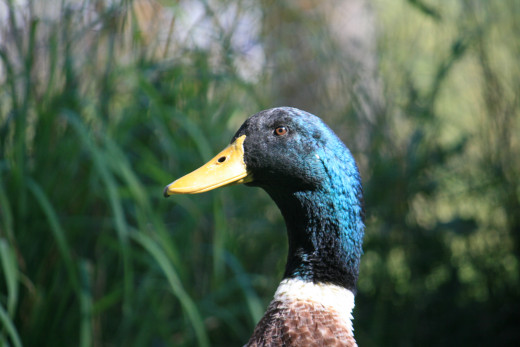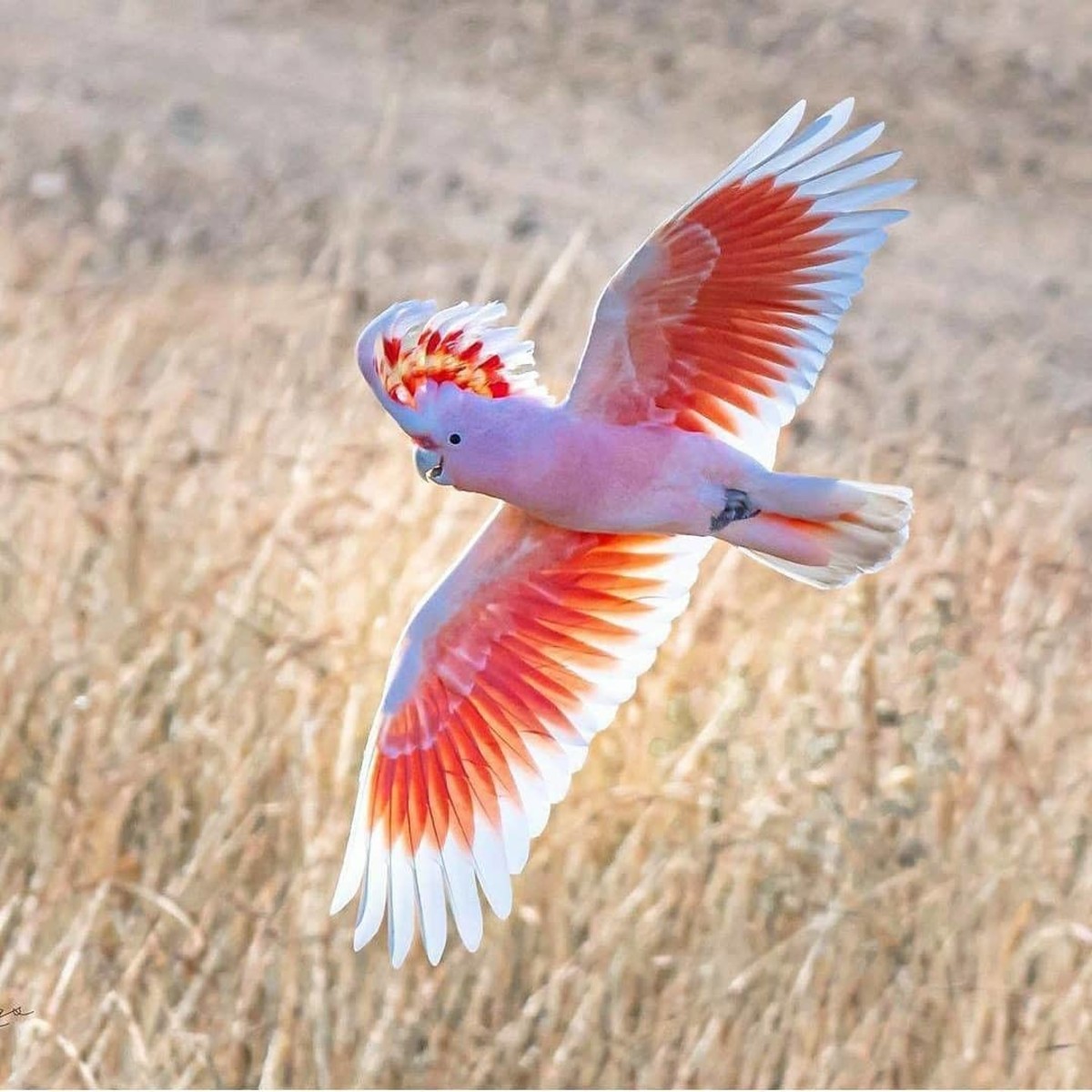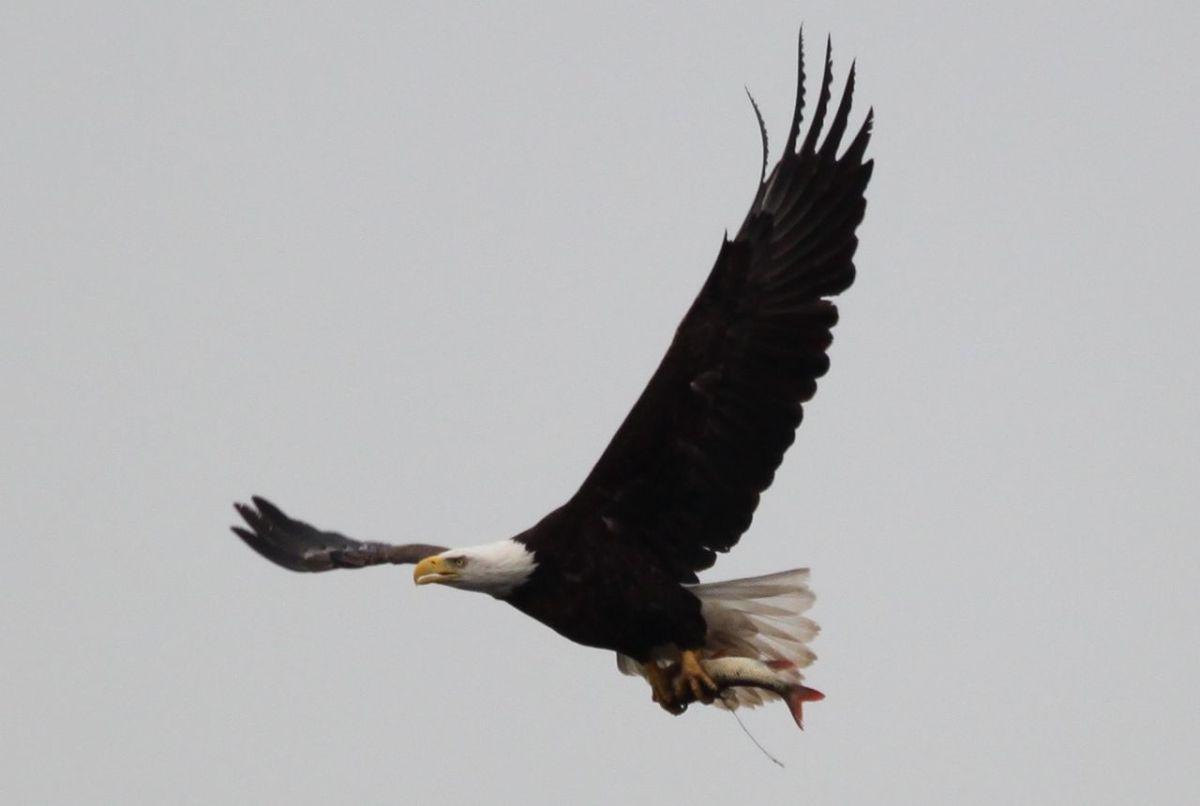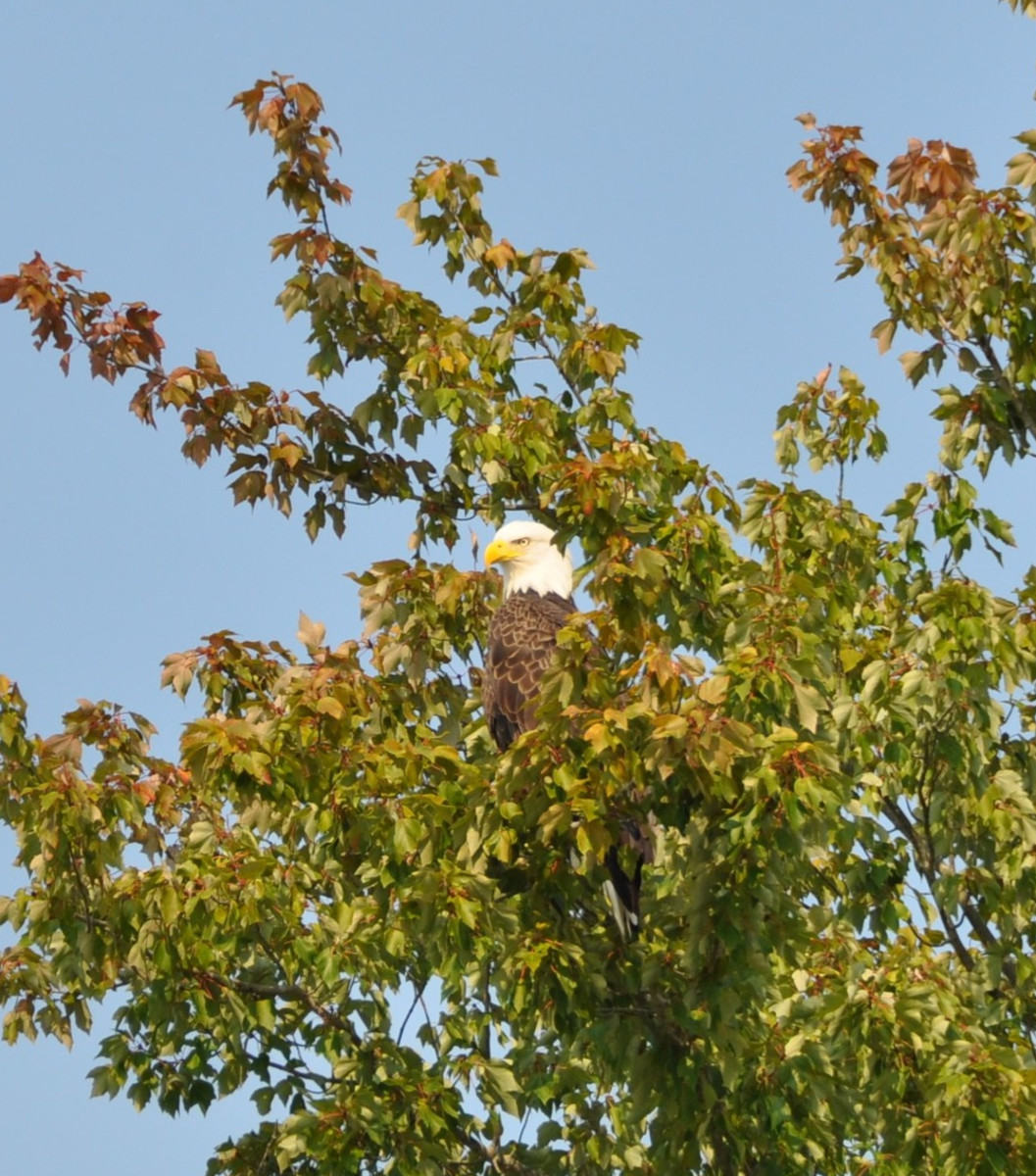Adventures With Ducklings, Part 2: Backyard Lessons Learned
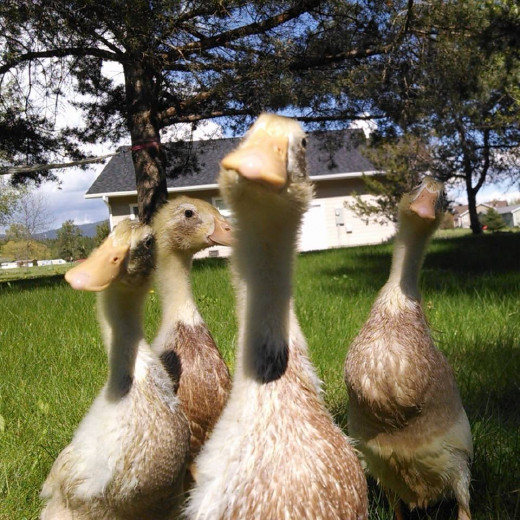
Are ducklings worth the effort?
Yes.
Are ducklings risky to keep in your backyard?
Yes, if you (or your kids) are at all susceptible to attachment.
How steep is the learning curve for backyard duck keeping?
This depends on the ducks, your yard, and a slew of unpredictable factors, so be "ready" to predict the unpredictable.
Adventures and Lessons, Continued
The preceding related hub ("Adventures with Ducklings: The Hazards of Cute") was about our first two rounds of ducklings. Both were Indian Runner ducks. We grew very attached, and learned hard lessons about duck-yard security through our tragedies (via a neighbor's dog).
Despite the loss of most of our initial birds, and needing some time to get over the loss, we considered duck keeping a positive experience (and made good use of the eggs), and intended to keep going. So we pick up here with our 3rd and 4th rounds of ducklings, and a few more things to know about ducks (by species, and as individuals).
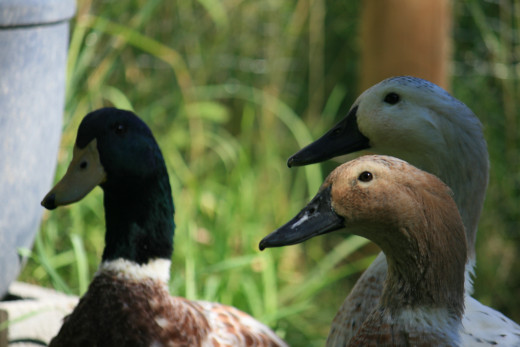
Welsh Harlequins (Our Third Round of Backyard Ducks)
We loved our runner ducks, and still had Amigo (one of our original two ducks) living outside with the chickens. But we were interested to see how other breeds compared.
I liked the thought of Welsh Harlequins, initially because I love wild ("real") Harlequin ducks. So the idea sounded novel. And they weren't in any way related to the native birds. They are a domesticated breed with the same name.
If there was a relationship genetically, I may have had to fret over ethical considerations, such as escape and interbreeding. Not a realistic scenario at all, given the remoteness of streams preferred by wild Harlequins, but it still may have led to fretting, none the less, because that's what a lot of biologists tend to do (the topic of another hub was the burden of constant fretting over ecological concerns).
The Initial Appeal of Welsh Harlequins
They sounded like a fun breed, of similar intelligence, but with better parenting instincts as compared to runners. Runner ducks often don't want much to do with babies and are not as likely sit on their eggs or rear a brood (as far as I remember reading back then).









The Realities of Welsh Harlequins
They are really, really beautiful birds with docile personalities. Not apt to be very social, at least with our group of 5, but docile and calm. Not particularly bright, though. They laid 100% of their eggs in the open, donating 100% of the eggs they laid to the neighborhood crows. We may have eaten one egg from them (total).
They also didn't tend to seek cover, and didn't consistently use their duck house at night. One by one, they disappeared, with heads only left behind or no trace at all. They were mostly probably eaten by owls. We've since covered the duck yard with bird netting for the protection of the next round of ducks, but most of the ducks we've had have taken cover at night.
One bird survived of the lot; a male the kids named Ninja, who lives with his "family" of chickens. He gets along well with our persnickity old hen and is nicer to young chickens than he is to young ducks.
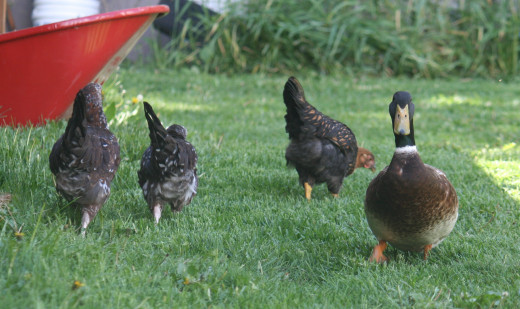
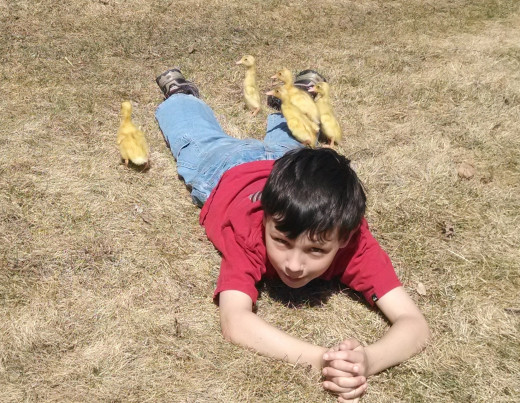
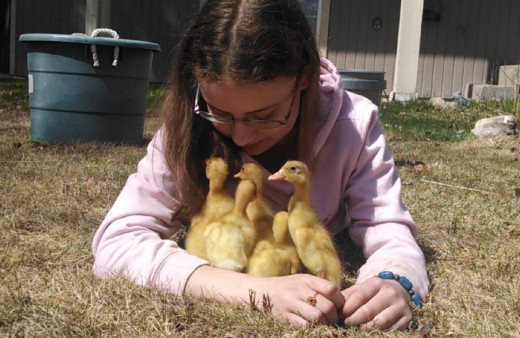
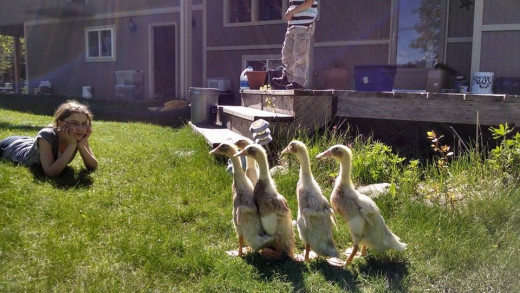
Round Four: More Adorable Indian Runner Ducklings
This last round (as in most recent and currently with us) were very irresistible as chicks. They'd been a round a while when Easter came around....so we ended up with Easter eggs and ducklings in pictures, but I've tried to be very clear in all photo captions that these weren't Easter ducklings.
Soap Box
Just to follow this little digression through--there are certainly responsible parents that buy baby ducks and chickens for Easter and then follow through with proper care, but the majority of Easter-present pets don't meet favorable ends, either not surviving the first year or becoming shelter animals.
Kiddie Pool
As for these birds, though, they came into our lives when I was leaving my job for illness, so they got more attention from me than other rounds of ducklings did. I'd get out the kiddie pool and fill it while the kids were at school, so it could warm up by the time kids were home (when ducklings are really little, cold water is too much for them, as they aren't really insulated yet). But then I'd give them a starter swim, and they'd have been in the pool once or twice by the time the kids got home. This was obviously not daily, but it was fun and I got attached to the little buggers.
Gender Issues
We tried for one boy and four girls, as more than one boy can be a problem. We're thinking now that they are maturing, the gal that picked them for us by gender at the feed store was backwards in her sexing criteria. But, that's still not certain yet, so we'll see.
"Meep Meep"
The biggest foible of this batch was discovering that one magical sound made them all come running. The kids were trying to get them to come to them when we had them outside, but they'd gotten used to my voice, so if I spoke at all while the kids were urging them in their direction, they'd abandon the kids and run to me. We discovered that "meep" was so peep-like, that if we did it in a cadence like theirs, it always got their attention, which helped for rounding them up, and for getting them to go to the kids when I was around.
This was a foible because it is a ridiculous thing to say as you walk around your yard. Though neighbors were mostly just amused to see a little line of ducklings following after me. After they got older, and moved out to the orchard/duckyard, I'd go out to feed them and they'd all come running. After a bit, they didn't run to me right away, but if I meeped at them, they'd run over to talk.
When they were tiny, they'd come gather around, peeping as close to my face as they could get. Anthropomorphic as it may be, I do believe I could see emotion in their adorable little faces. Ducks are very, very social critters, and these guys convinced me they needed a momma. Which is the quintessential hazard of cuteness. I don't know how wildlife rehabilitators handle the cuteness and attachment.
These guys have lived outside for a few months now and no longer run over to talk. My husband build them a pond out of a bathtub. I chased them down one day to get them to go in, which they really didn't like. I don't really think that traumatized them enough to be the reason they don't come to us anymore--we'd had to chase them down prior to that.
But a few days later we found one of the ducks dead in the pond. Not sure what happened. Then, just after that was the 4th of July, which this year in our neighborhood was a six or seven day long, 4 to 5-hour-a-day firework and firecracker marathon. Now they mostly run and hide. In the end, it's better that they are at least a little skiddish, as they will need to dodge predators at some point in their lives.
We covered the orchard with netting, so they are safer from raptors, but that won't keep all Montana critters out.
Smarts
I was determined that these guys would be as smart as our original ducks, but I'm not entirely seeing that to be the case. One does seem like he might be an evil mastermind, but overall they are not terribly bright so far. I'll give them a couple of years, though, before I decide. I trust that they are already smarter than the Harlequins, so I think their survival rate will be better.
Welsh Harlequin Traits So Far
Trait
| Reported For Breed
| Our Experience So Far
|
|---|---|---|
Egg Frequency
| Prolific
| Prolific (but layed all eggs out in the open, donating them to the crows---we got one egg total for us)
|
Noise
| Average/Calm
| Quiter than runners, clam, sometimes loud as a group
|
Intelligence
| Usually not noted (to me, indicates not a strong point, perhaps)
| Not immense (at all)
|
Personality
| Calm
| Calm, sweet, fairly daft (less individually distinct than runners)
|
Parental Instincts
| Maternal
| Unknown--they donated all of their eggs to the crows
|
Indian Runner Duck Traits So Far
Trait
| Reported for Breed
| Our Experience So Far
|
|---|---|---|
Egg Frequency
| Prolific
| Prolific (though Miss Piggy would escape daily to lay her eggs)
|
Noise
| Noisy, excitable
| Noisy, conversational, loud emoters
|
Intelligence
| Smart
| Very smart (mostly)
|
Personality
| Personable, friendly
| Personal, funny, individuals, emotive
|
Parental Instinct
| Non-maternal
| Non-maternal (Miss Piggy ran from babies)
|
Future Ducks?
These current Runner ducks are smartening up and starting to show more individual personality. We have four remaining, after we found one dead. The most mysterious of all of our duck losses, as we covered the duck yard and there were no signs of anything getting in. Ninja lives in the chicken yard, as he was way too aggressive with the young ducks when they moved outside. He does well there.
We plan to keep going with birds, both chickens and ducks, but bear proofing is long, long overdue and will be our next step. Other than stabilizing the netting over the orchard/duck yard and making some protected space for an orphaned wild duck we're fostering for local rehabilitators.
Bear Proof Backyard Birds
We live in bear country. We're in a neighborhood, but that only goes so far, where we live, in lessening our chances of a bear coming through the neighborhood. Typically, if bears are seen in our neighborhood, they are moving through and only seen briefly moving from covered area to covered area (there's a riparian corridor near the other side of our neighborhood, and cover along the railroad tracks, making a decent bear corridor).
But by the time we started keeping ducks and chickens, chickens were causing increasing problems for bears in our area, leading to multiple bear removals in recent years (meaning the bear had to be euthanized when hazing or relocation was ineffective at keeping bears away once they'd gotten a taste of chickens).
Electrifying our bird yards is extremely important to me, and was the top of my list multiple years, but hasn't happened yet. I can blame money and illness, to a point, but at the point, reasons don't matter--it just needs to happen. In the past six years the only accounts of bears are bears moving through and are less than one per year. We are surrounded by dogs and haven't had any bear sign in yards on our side of the neighborhood. But it could happen any time, so electric fence is the best way to protect our birds and the bears.
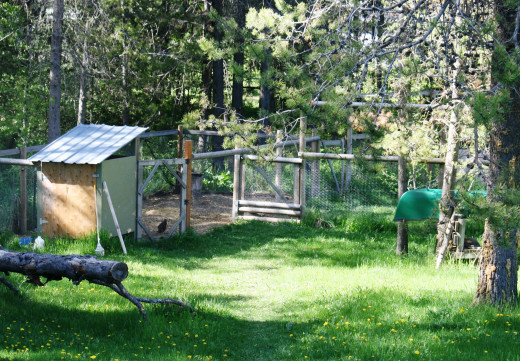
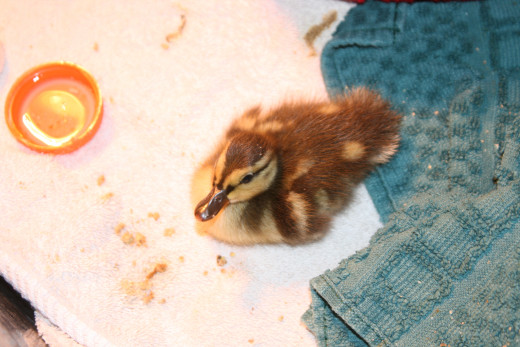
Foster Duckling
I'm more than smitten with a baby duck brought to us by a neighbor. She was wondering if it was ours, but it was tiny wild duckling, but hearing I was a biologist and in touch with rehabilitators, she was hopeful she could hand him off.
My kids are used to this happening, and know that whatever critter is involved is only passing through. But this little guy was extremely cute and needy. A big pond would be his fate at the rehabilitation facility, which he was too little for. So when the rehabber I tend to call suggested he'd have better odds with us, since we're set up for ducks, we were pretty happy. Maybe not my husband, since this particular duckling was in the living room needing lots of attention, making lots of noise. But the rest of us were thrilled.
He's quite a bit bigger now, but still very social and not quite ready for the big birds yet. He seems to be having an issue with a wing, so we'll see what that's about. He loves the duck yard, though, so he will be happy to be outside, as long he's got the company of the bigger ducks, if they will take to him.
He's the perfect example of the trouble cute can cause. I'm fairly objective as a biologist---with the apparent exception of ducklings.

